History
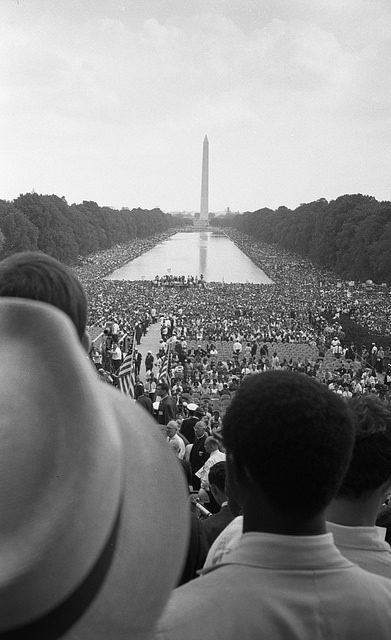
Civil rights march on Washington, D.C. (LOC) Leffler, Warren K., photographer. Civil rights march on Washington, D.C. 1963 Aug. 28.
Mission
The History Program is committed to providing effective instruction and advisement for undergraduate students, to providing appropriate academic services to the University and the community, and to supporting faculty research and publications, in accordance with the University’s mission and core values. The program prepares students for admittance into graduate programs at leading universities and for employment in jobs related to the academic field of history. In addition, the department provides courses for social student majors in the College of Education.
Upon completion of their degree requirements, graduates of the History Program will be able ao:
- Explain basic methodological concepts that help historians assemble, organize, evaluate, and interpret evidence.
- Demonstrate significant knowledge of major events and trends in United States and African American history.
- Effectively identify and communicate historical arguments based on common ideals and themes in the field of history.
- Conduct basic historical research in primary source materials, provide original interpretation of sources, and provide accurate referencing for all sources.
- Aware of the contrasts between peoples of different times and places and display a sense of informed perspective and chronology.
Bachelor of Arts in History
The History Program at Prairie View A&M University prepares students for careers in areas including, but not limited to, teaching, government, law, public history, and political life. The History Program encourages a systematic study of the past and attempts to use the gained knowledge to explain human nature, behavior and contemporary issues.
For those students wishing to apply for Secondary Teacher Certification, please contact Dr. Ronald Goodwin (History/Political Science) at regoodwin@pvamu.edu or Dr. Britine Perkins (Social Studies Education) at blperkins@pvamu.edu.
Bachelor of Arts in History Degree Program Requirements
| Core Curriculum 1 | 42 | |
| Foreign Language Requirements (One Language) | 6 | |
| Major Requirements 2 | ||
| HIST 2321 | World Civilizations I | 3 |
| HIST 2322 | World Civilizations II | 3 |
| HIST 2300 | Intro to Historical Methods | 3 |
| HIST 4381 | African-American Hist to 1876 | 3 |
| HIST 4382 | African-Amer Hist Since 1876 | 3 |
| HIST 4390 | Senior Seminar | 3 |
| 18 semester credit hours of Advanced History Electives | 18 | |
| Advanced U.S History Electives (6-12 semester credit hours) | ||
| Texas History | ||
| Military History | ||
| African-American History | ||
| Introduction to Public History | ||
| Women in History | ||
| Contemporary United States | ||
| American Chattel Slavery | ||
| Civil Rights Movement | ||
| Independent Study | ||
| Special Topics 3 | ||
| Independent Study | ||
| TExES Prep-Hist/Soc Studies 4 | ||
| Advanced Non-U.S. History Electives (6-12 semester credit hours) | ||
| Ancient Egypt & the Near East | ||
| Ancient Greece | ||
| Ancient Rome | ||
| Medieval Europe | ||
| Atlantic World | ||
| Colonial Latin Amer & Carrib | ||
| Pre-Colonial Africa | ||
| Post-Colonial African History | ||
| African Diaspora | ||
| Early Christianity | ||
| Support Area Requirements | ||
| ECON 2302 | Principles of Microeconomics | 3 |
| or ECON 2301 | Principles of Macroeconomics | |
| ENGL 2327 | American Literature I | 3 |
| or ENGL 2328 | American Literature II | |
| GEOG 1302 | Introduction to Human Geography | 3 |
| POSC 2000 Level or Above | 3 | |
| Unrestricted Electives | 6 | |
| Concentration Requirements (Select one option from below) | 18 | |
|
Minor Field of Study (18 SCH) 5
|
||
|
With Teacher Certification Concentration
|
||
| Educational Foundations | ||
| Educational Psychology | ||
| Instructional Planning and Assessment | ||
| Instructional Methodology and Classroom Management | ||
| Student Teaching Secondary II | ||
| Total Hours | 120 | |
| 1 | In order to fulfill the 6 SCH of Life and Physical Sciences requirements, students are advised to take a BIOL, CHEM, PHYS, or PHSC sequence. |
| 2 | Students must earn a minimum grade of “C” in all classes pertaining to their major and in those required in the support area and unrestricted electives. Furthermore, a minimum grade of “C” is required in the minor area (if applicable). |
| 3 | Special Topics are repeatable for credit when the course topic differs. |
| 4 | This is a one (1) semester credit hour course designed to prepare students majoring in Secondary Education (History/Social Studies) to take the required state certification exams. |
| 5 | Depending on the credit hours required by the selected minor. |
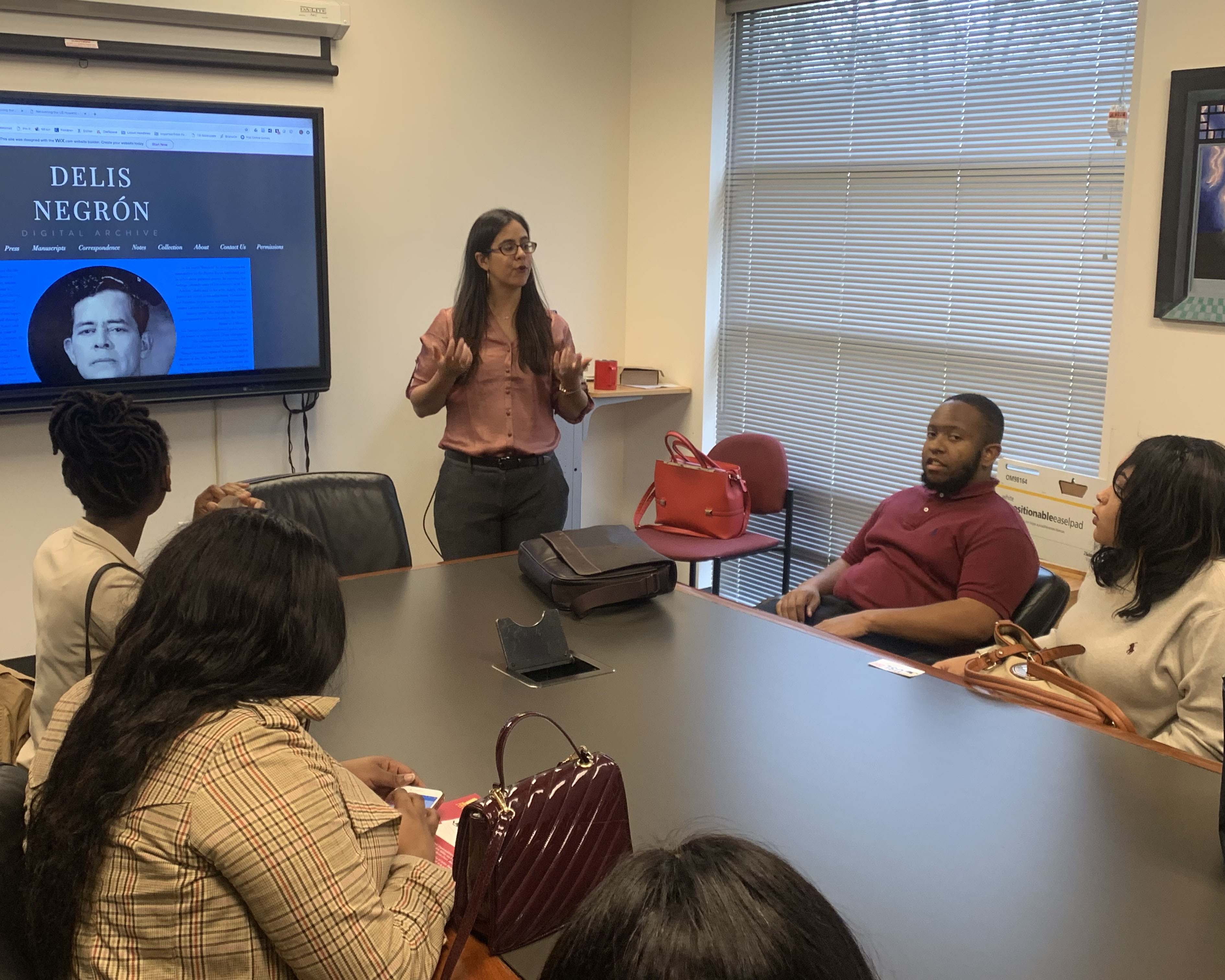
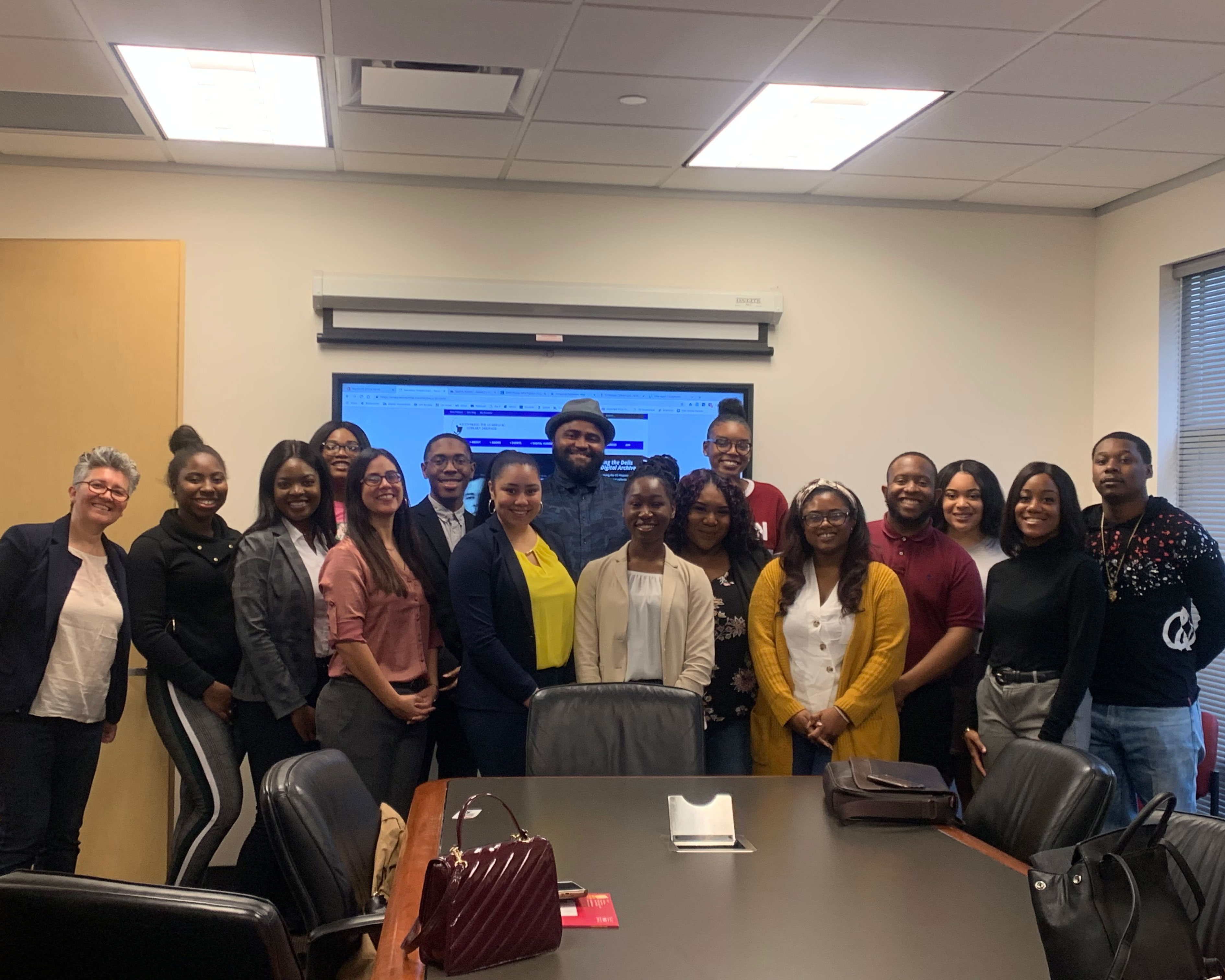
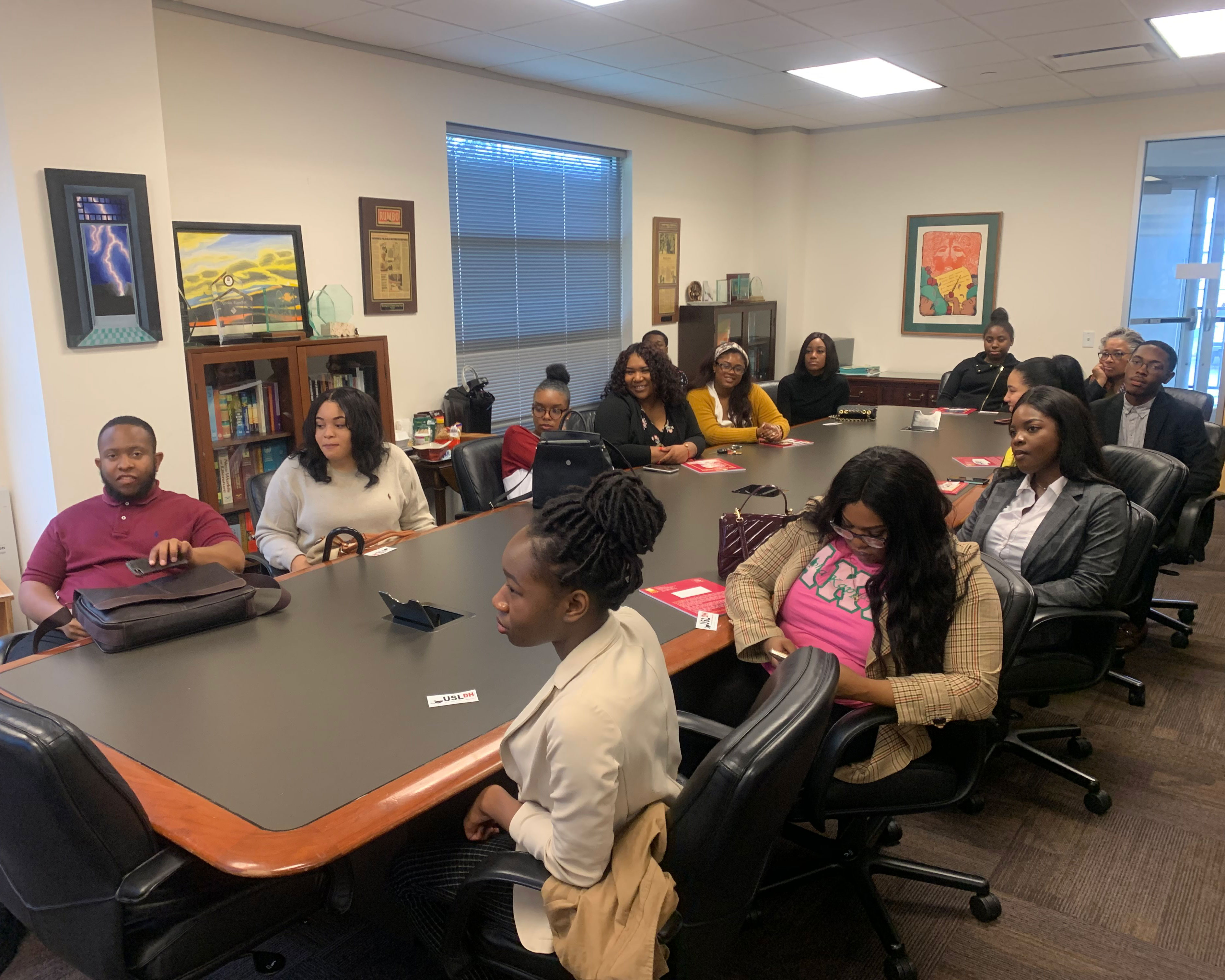
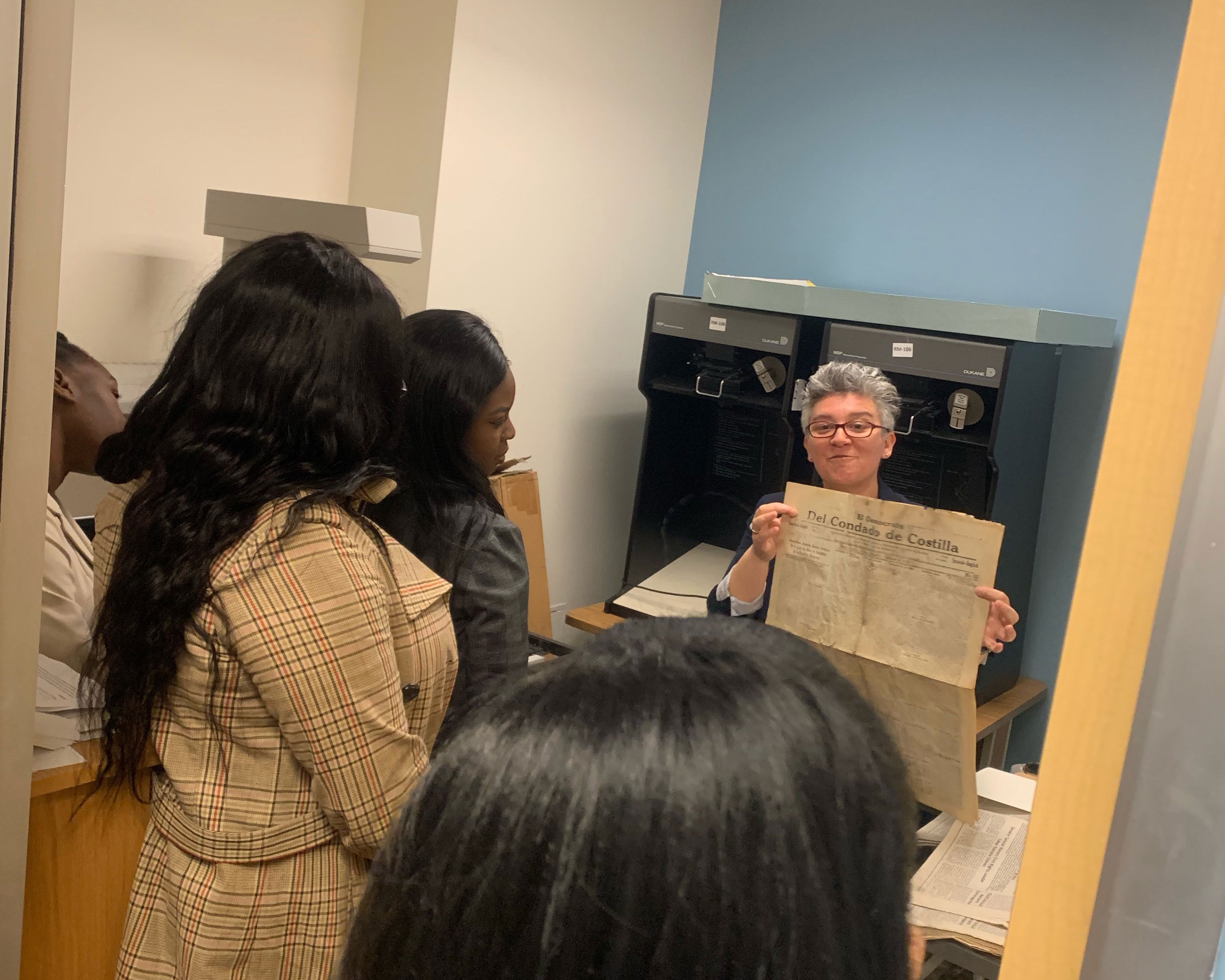
History students visited the University of Houston’s US Hispanic Literary Recovery Project, and were exposed to their digital collections and preservation efforts.
What can I do with a history degree?
Public History and Historical Preservation
These are some of the fastest growing fields in the nation, and many history majors find employment in these areas. Museums, historical societies, national parks, official historic sites, and tourism bureaus all need employees with knowledge of history. Scholarly presses hire employees with history degrees as sale representatives, editors, copy editors, and researchers. Libraries, archives, state and local historical societies, and government offices all hire people with history degrees. In recent years, there has been an effort to save historical landmarks, leading to a growth of historical preservation societies and organizations that are looking for qualified employees to protect the nation’s cultural and physical heritage.
Teaching
Teachers are some of the most important people in our society. Teachers help shape young minds in the most crucial years of adolescence development. History is a terrific major for those who are seeking employment as a secondary teacher. Students often ask, “What can I do with a degree in history?” Most students are aware that they can use their degree to teach, but few are aware of the other possible career choices associated with a degree in history.
Law School
The number of students applying to law school have increased during the last couple of decades. History is an excellent major for undergraduates who plan to pursue a law degree. Knowledge of history is assumed in law schools. Students with a history degree not only gain valuable knowledge of the past, but they also learn how to research and write – valuable skills for successfully completing a law degree.
Christian Ministry
Most students believe that if you want to go into the ministry, you need to major in religious studies. These students are partly correct because students will have to attend divinity school, but some divinity schools actually prefer undergraduate study in some other discipline to develop breadth of mind needed for a successful ministry. History works well for this purpose.
Communication
History majors are well prepared in the art of communication. The field of communication has exploded in the twenty-first century. With the introduction of internet, hundreds of cable channels, and a variety of other new technologies, employment opportunities will continue to grow for those who not only know how to say something, but who also have something to say. Movies, television programs, news programs, newspapers, and magazines all require people with solid communication and research skills. A degree in history are especially suited for these areas.
Government
Federal, state, and local governments are the largest employers in the United States. Government agencies are looking for graduates skilled in critical thinking, research, communications, and with an understanding of how the system works. History majors have an advantage over other applicants in that these skills are essential to earning a history degree.
Business and Industry
A myth often instilled into students is that a business degree is necessary for a job in business and industry. If you accounting, finance, and marketing, then a business degree is probably the path that you should follow. However, keep in mind that most corporations hire people who are independent thinkers who know how to find information and apply it to the tasks associated with the position held by their employees. Many companies want people who have knowledge of other countries and other cultures. A history degree prepares students to fit these job requirements. Corporations will train their employees to handle their corporate jobs – they do the same for business majors – so it is not absolutely necessary to earn a business degree if you want to enter the corporate world. History is an excellent discipline for those students who are interested in business.
Limitless Opportunities
Careers for history majors are only limited by students’ own imagination. You can visit with any history professor who has taught for a number of years and they will share with you that they know history majors who became artists, small business owners, military officers, insurance agents, bankers, politicians, restaurateurs, lobbyists, archivists, doctors, musicians, city planners, architects, writers, newspaper editors, physical therapists, professional athletes, high school coaches, social workers, travel agents, corporate historians, and the list goes on.
In essence, the answer is simple. “You can became a leader of your society who is well educated, interesting, informed, reasonable, and employed!”
